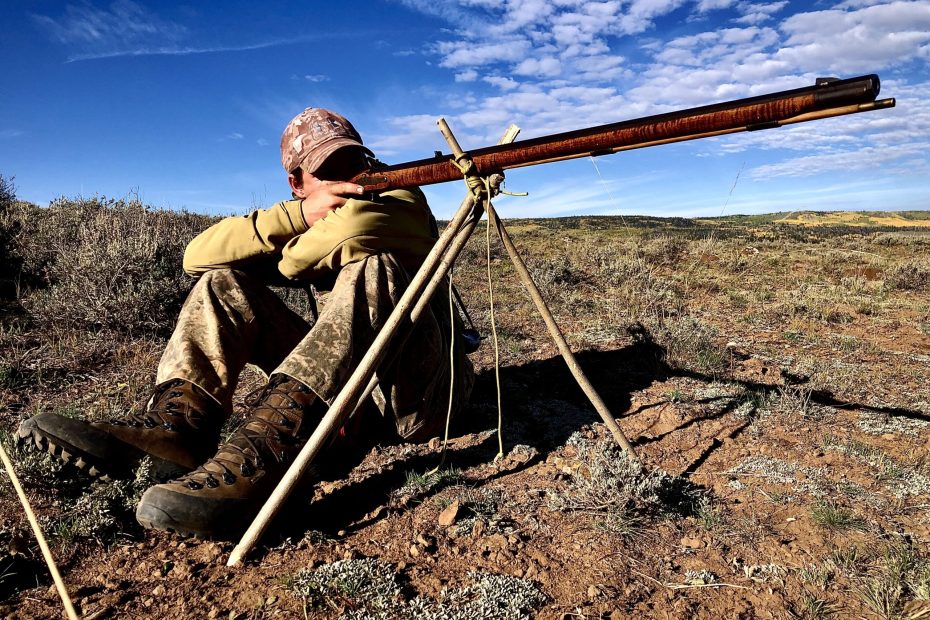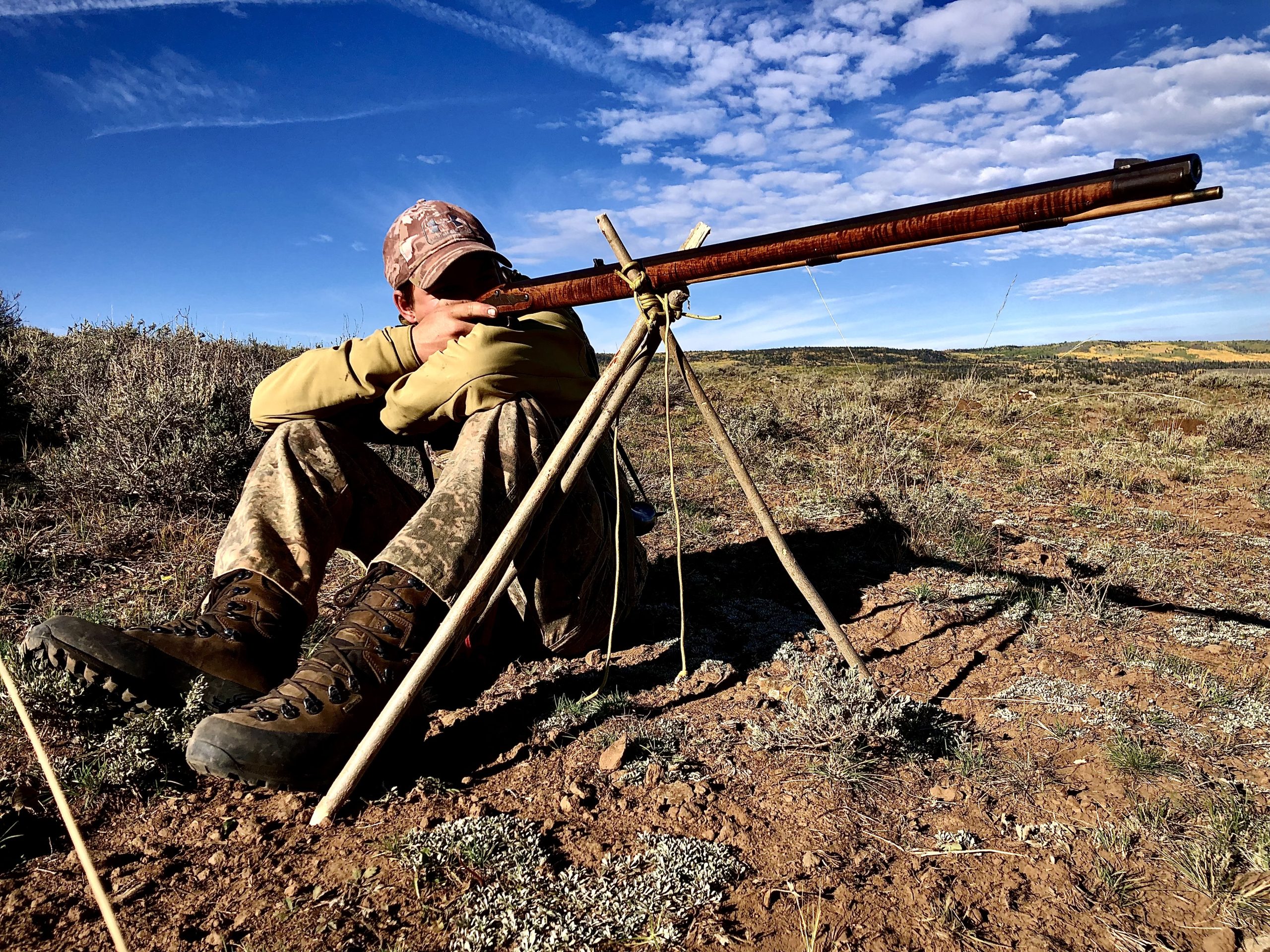
A young hunter stalks within easy range of a big antelope, but the buck is facing him and he’s shooting a 1700s-era patched round ball. Should he take the shot?
As a lifelong hunter, some of my favorite experiences in the field have come while watching and helping youngsters and new hunters learn the ways of the woods. This experience was one of those, yet a little different too. I could see that my 14-year-old son had become a skilled hunter who no longer required my help. It was the first time I haven’t been at his side when he shot a big game animal (though he’s killed lots of coyotes on his own). Let me tell you, it was cool to watch.
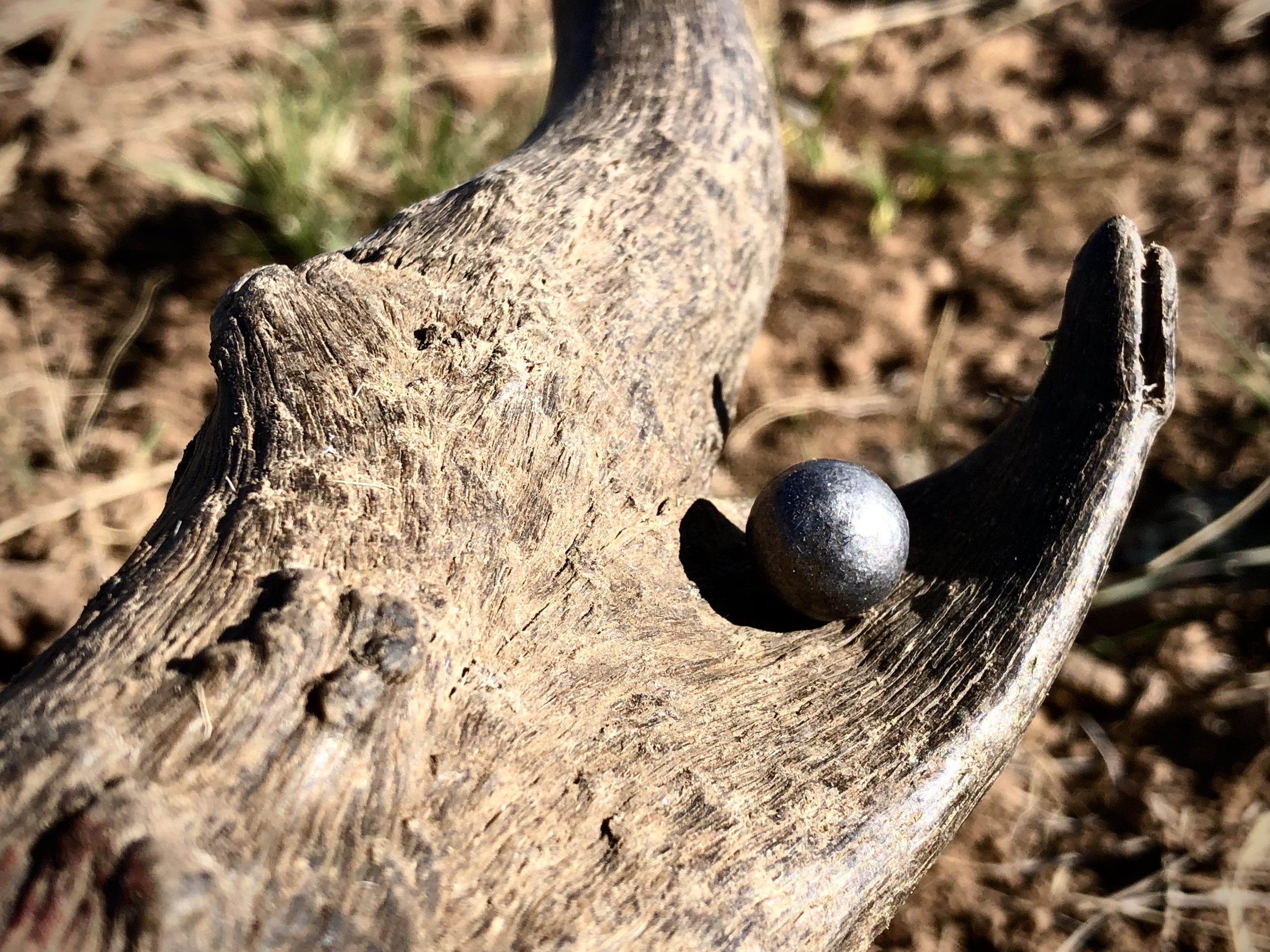
RIFLE AND AMMO
Josiah had drawn a Limited Entry muzzleloader pronghorn tag in Utah. Rather than using a scoped modern synthetic-and-stainless inline muzzleloader, he chose to hunt with a traditional .50 caliber long rifle that I made for my wife Trina years ago. It’s a beautiful piece with a 36-inch Green Mountain barrel, Siler caplock, hand-carved trigger, and fixed iron sights. Josiah shot it extensively before his hunt, and when shooting from a sitting position over cross-sticks was lethal out to 125 yards.
The load he used consisted of a 170-grain .490” swaged lead round ball made by Hornady shrouded in a .0018 thick linen patch and seated atop 70 grains of 3F Goex Black Powder. That’s not a super potent load, and I don’t have a velocity to share with you, but it shot very accurately and surprisingly flat out to 125 yards.
For optics, Josiah was using one of Leica’s new Geovid Pro 32 Binocular/Rangefinder units in 10X32 power. I watched from a distance through an old Zeiss spotting scope. I filmed the hunt on my phone through that spotter with the use of a Phone Skope attachment.
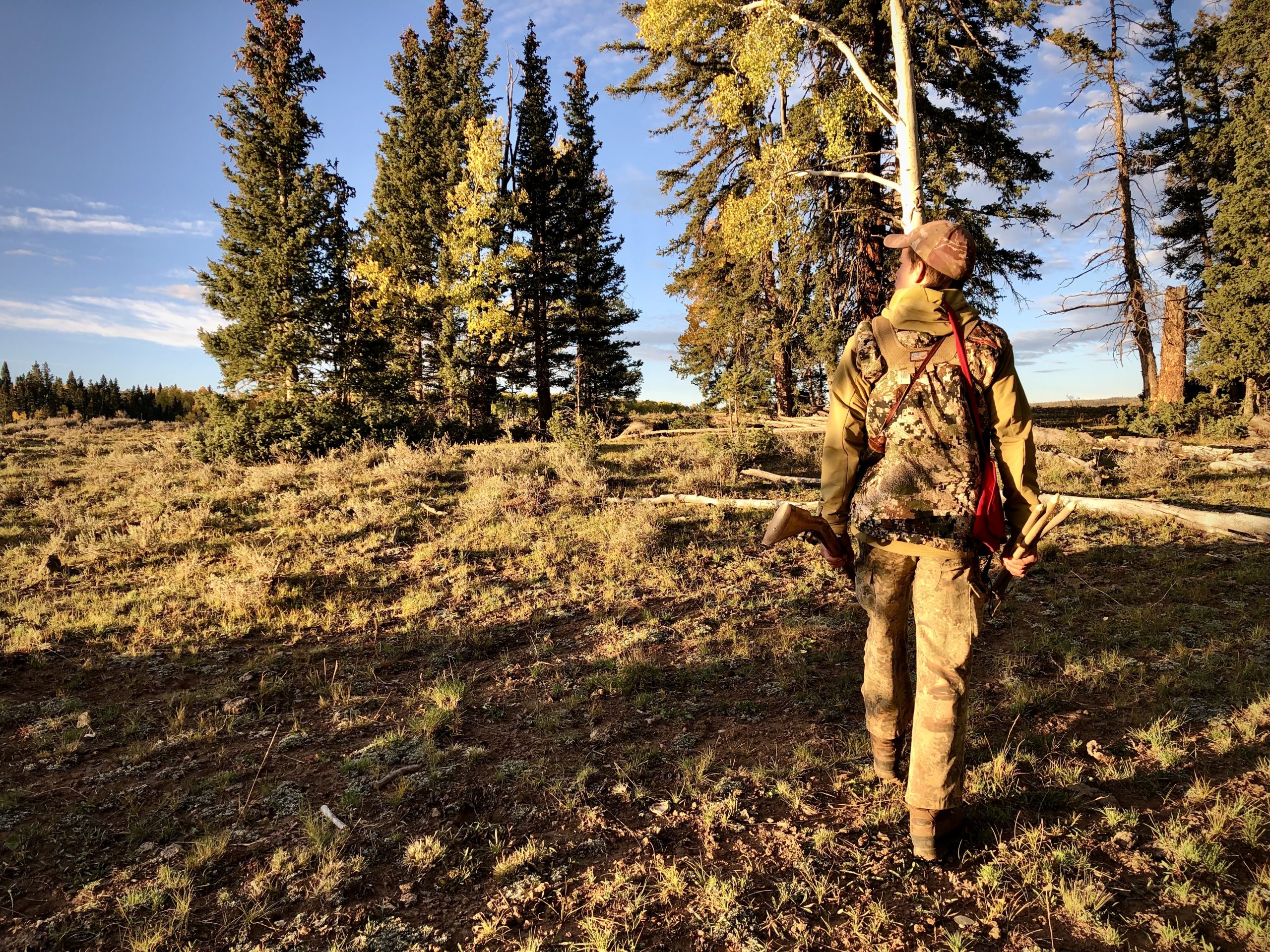
THE HUNT
The pronghorn unit Josiah had drawn features high-elevation rolling sage flats and swales, broken by timbered draws and ridges. It’s a ways from the nearest town, and the roads aren’t very good. A busy summer hadn’t left us any time to scout, but I’d hunted the area before and knew where the antelope like to hang out and how they like to travel. On the afternoon before the opening day, our truck groaned and complained as we eased along a rough two-track, working our way into a secluded campsite in the heart of our hunting area. Josiah counted roughly sixty pronghorn en route, including several nice bucks.
We talked about his goals for this hunt, and both agreed that considering the fact that he was hunting with one of the most primitive weapons available, and that pronghorn antelope are notoriously difficult to stalk, he should shoot the first nice buck he had a good opportunity at. We expected it to take several days and many stalk attempts before he managed to close within his effective range.
We set up camp in a patch of timber, pitching our tent and gathering a pile of firewood under a tarp against an anticipated rainstorm. Josiah began to ready his muzzleloader and gear to hunt the next morning. That’s when he discovered that he’d left home the Bog Pod shooting sticks he’d done all his practicing with. We both stomped around and growled for a minute, but then he cut a couple of finger-sized saplings and fashioned them into a set of cross-sticks. He was ready to rock and roll.
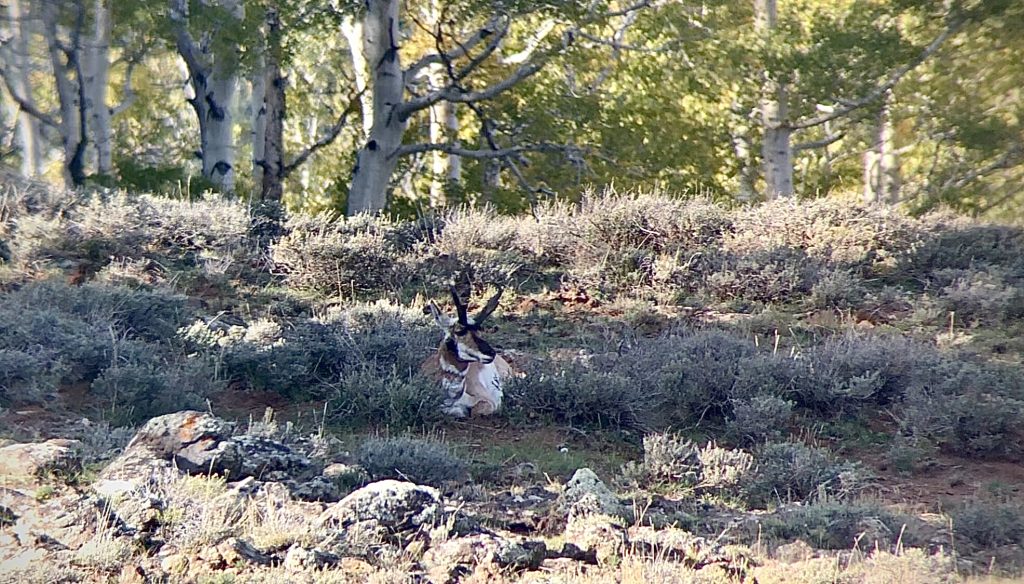
Daylight found us moving slowly toward a big swale where we’d seen a big buck tending his harem the night before. Good shooting light had just arrived when we spotted four pronghorn in the distance, one of them a really nice buck. They moved out of sight across a low ridge, and the stalk was on.
The antelope split up, with three disappearing down a draw and the fourth – the big buck – feeding up the opposite side of a gentle swale. Whenever he put his head down to feed we would move closer, keeping together and trying our best to look like a beef cow feeding in the sage. More than an hour passed and the buck finally bedded, 265 yards away with no cover at all between us. Had Josiah been hunting with a modern rifle or even a modern muzzleloader his hunt would have been over right there, but with a primitive muzzleloader, it was just the beginning of the stalk. Sometimes antelope are very curious and can be “flagged” in with a white handkerchief or similar, so we hunkered down and waved my yellow silk scarf above us. The buck was interested but seemed more calmed by the sight than stimulated. I attribute this to the scarf being similar in hue to a pronghorn’s side, and I believe the movements made the buck think another antelope was feeding at our position.
Time passed, and eventually, Josiah decided to try to stalk across the intervening swale and close within shooting range of the buck. He mimicked an animal feeding and kind of meandered in the general direction of his quarry on all fours, pretending to stop and feed along the way. It worked; the buck ignored him most of the time. Whenever he became nervous I would wave the yellow scarf and he would relax and resume chewing his cud.
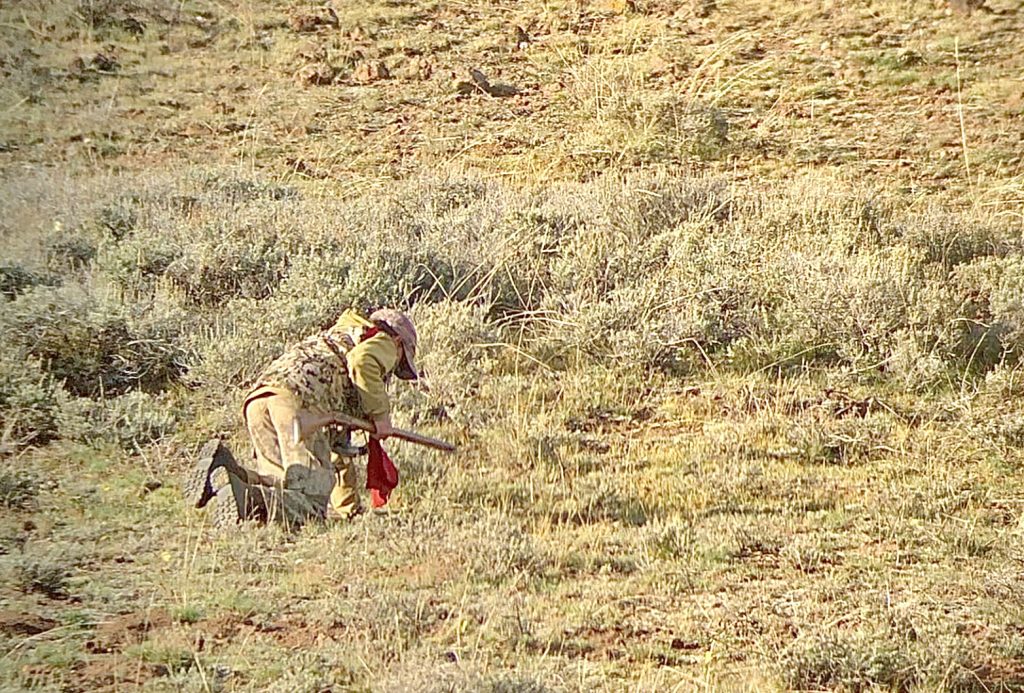
Josiah managed to crawl to just under 100 yards of the buck and set up his shooting sticks. He didn’t have a shot because the buck was bedded, and I saw him looking back at me. He told me later he considered waiting there till the buck moved and gave him a shot, but decided to stalk closer because it would be more fun and challenging. Crawling slowly, he managed to keep under cover of the low sage and a few rocks and closed to 50 yards. I was on pins and needles while watching, amazed that he was getting so close to the buck. Finally, he sat up, rested his rifle across his homemade shooting sticks, and whistled. I knew then that he needed the buck to get up before he had a clean shot at it. I stood up and let the antelope see me, and then made my best rendition of a coyote howl. That did the trick; the buck stood up and stared in my direction. He was facing dead-on to Josiah.
WOULD YOU TAKE THE SHOT?
Put yourself in Josiah’s shoes; after practicing all summer with your primitive rifle you’ve traveled 500 miles, slept on the ground, and then managed to stalk within easy range of a big pronghorn buck on the first stalk of your very first day. It should be an easy shot, but the buck is facing you dead on. What are you going to do – will you take the shot?
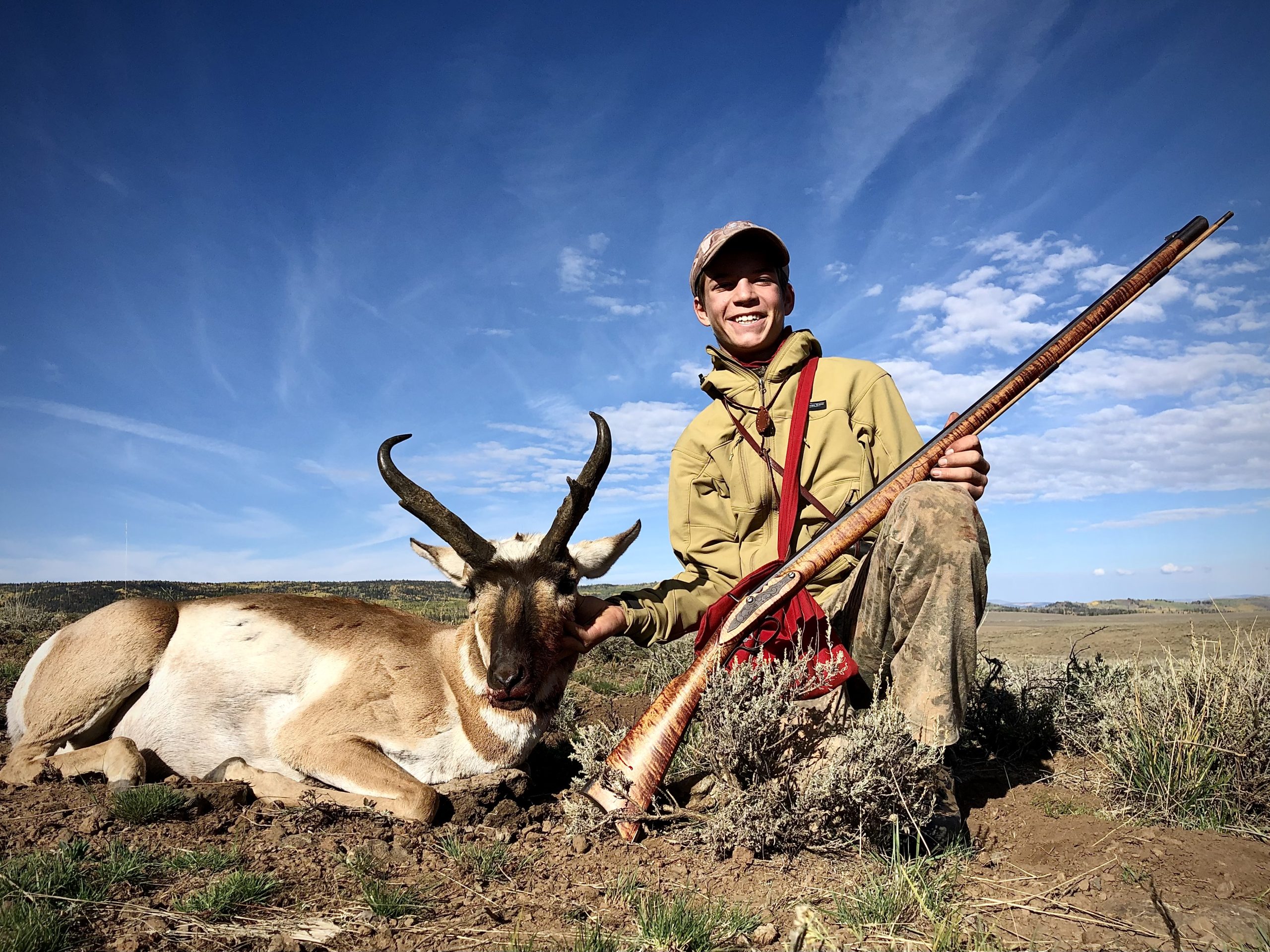
HERE’S WHAT HAPPENED: TRUE STORY
From his sitting position with the long rifle rested across his shooting sticks Josiah could only see the tips of the buck’s horns 50 yards away. He whistled to try to get the buck to stand, with no response. Then I made a coyote howl and the buck stood, fully alert. Josiah placed the iron sights on the buck’s chest and squeezed the trigger. You can watch the result in the accompanying video – it’s spectacular. The round ball entered the buck’s chest and exited through its backbone, dropping it in its tracks.
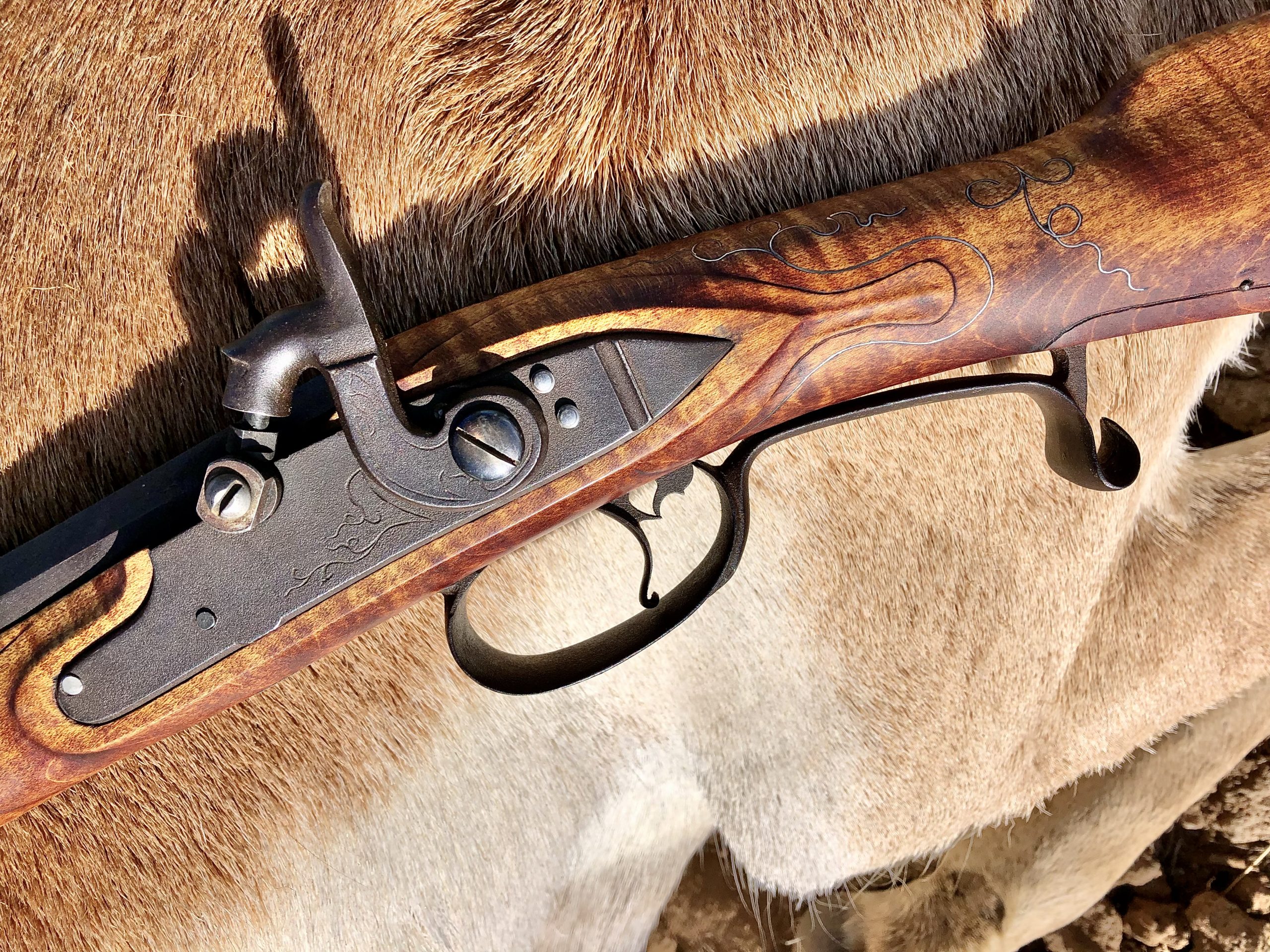
CONCLUSION
Josiah worked hard to be ready with that primitive rifle, choosing to hunt with it rather than a modern muzzleloader because of the extra fun and challenge it offered. He’s a very good shot and has exceptional eyesight, which enabled him to be lethally accurate with the iron sights. And he executed a perfect stalk, putting him within easy range with the old smoke pole.
Would I take that shot myself? You bet I would – every time. At close range a patched round lead ball is devastating, and I had no doubt of its ability to do the job. What do you think? Would you take the shot? I’d love to hear your thoughts in the comment section below.
